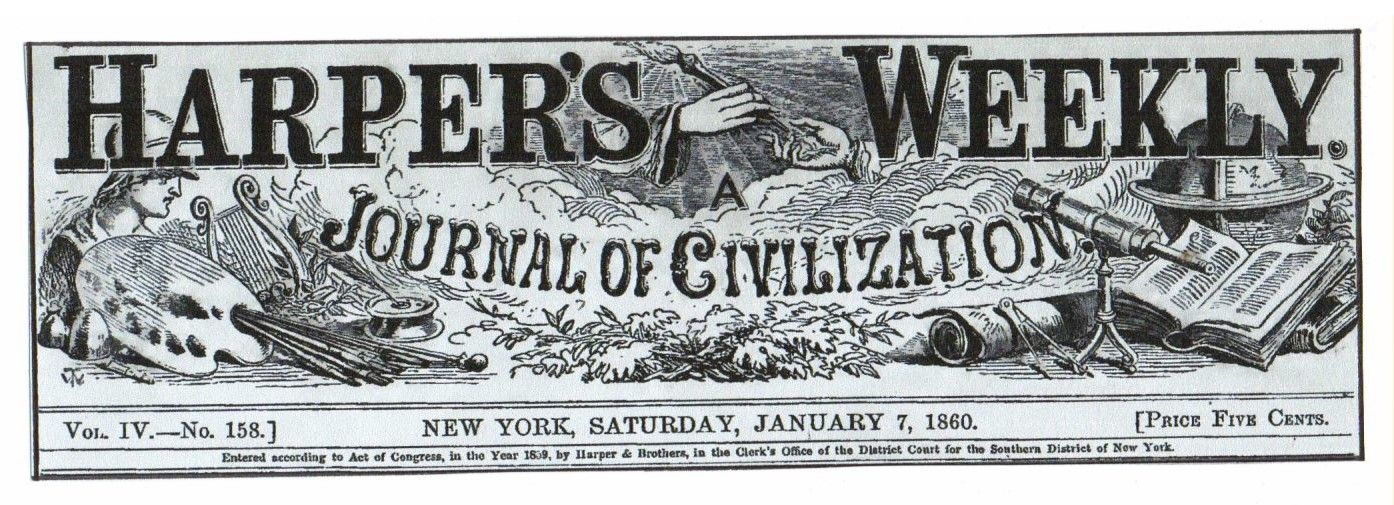
Posted on 01/07/2020 5:01:10 AM PST by Homer_J_Simpson





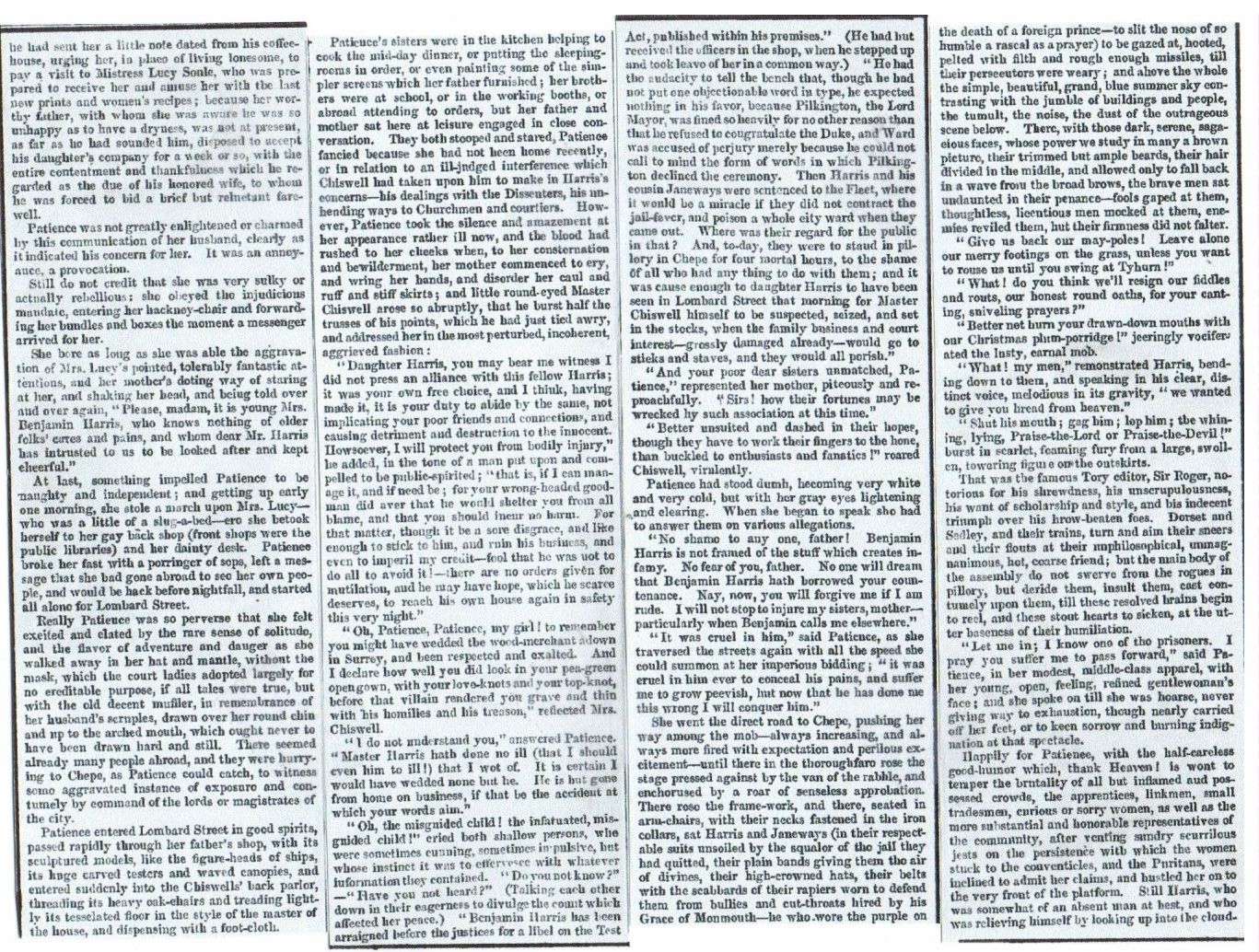

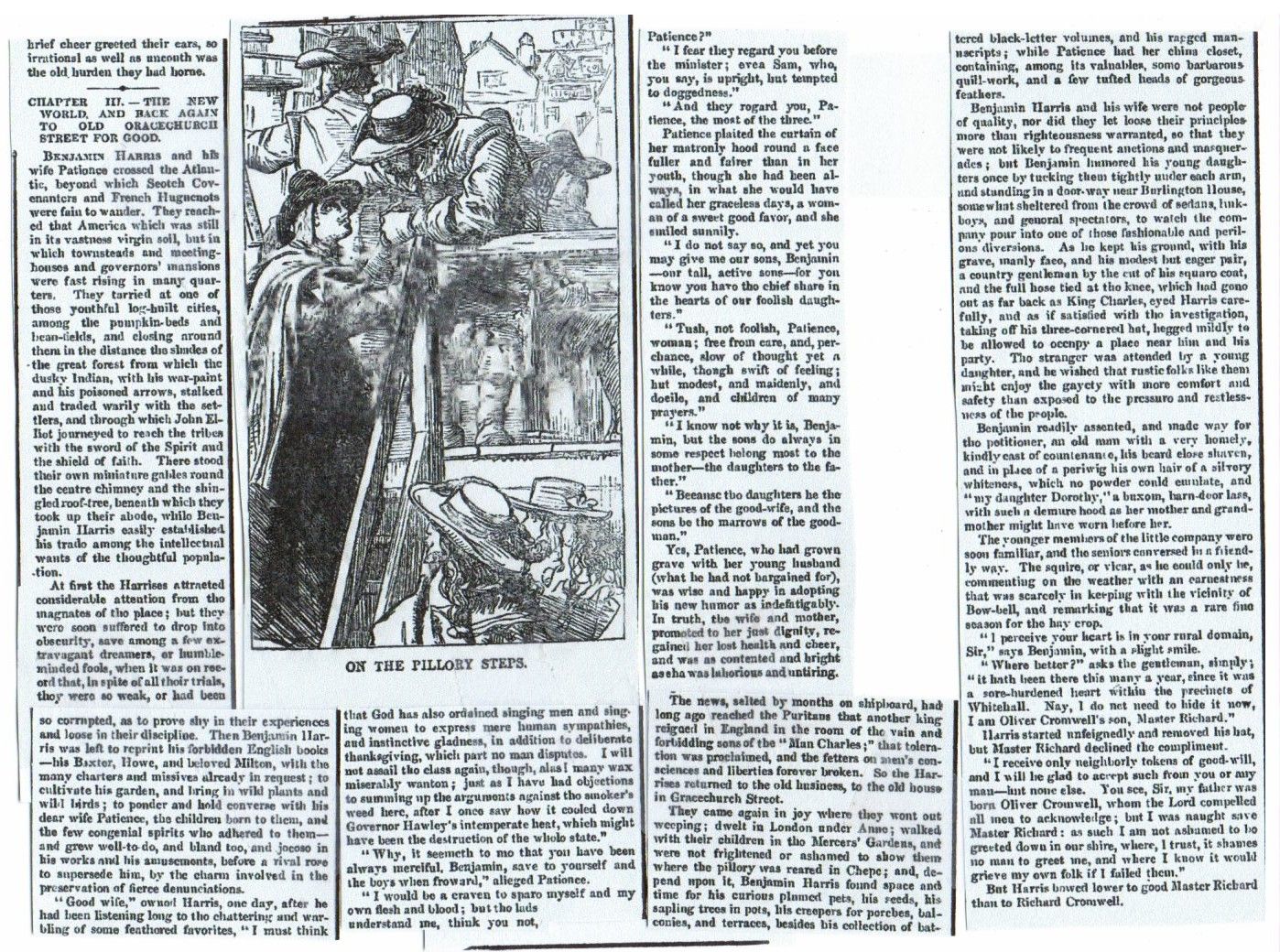







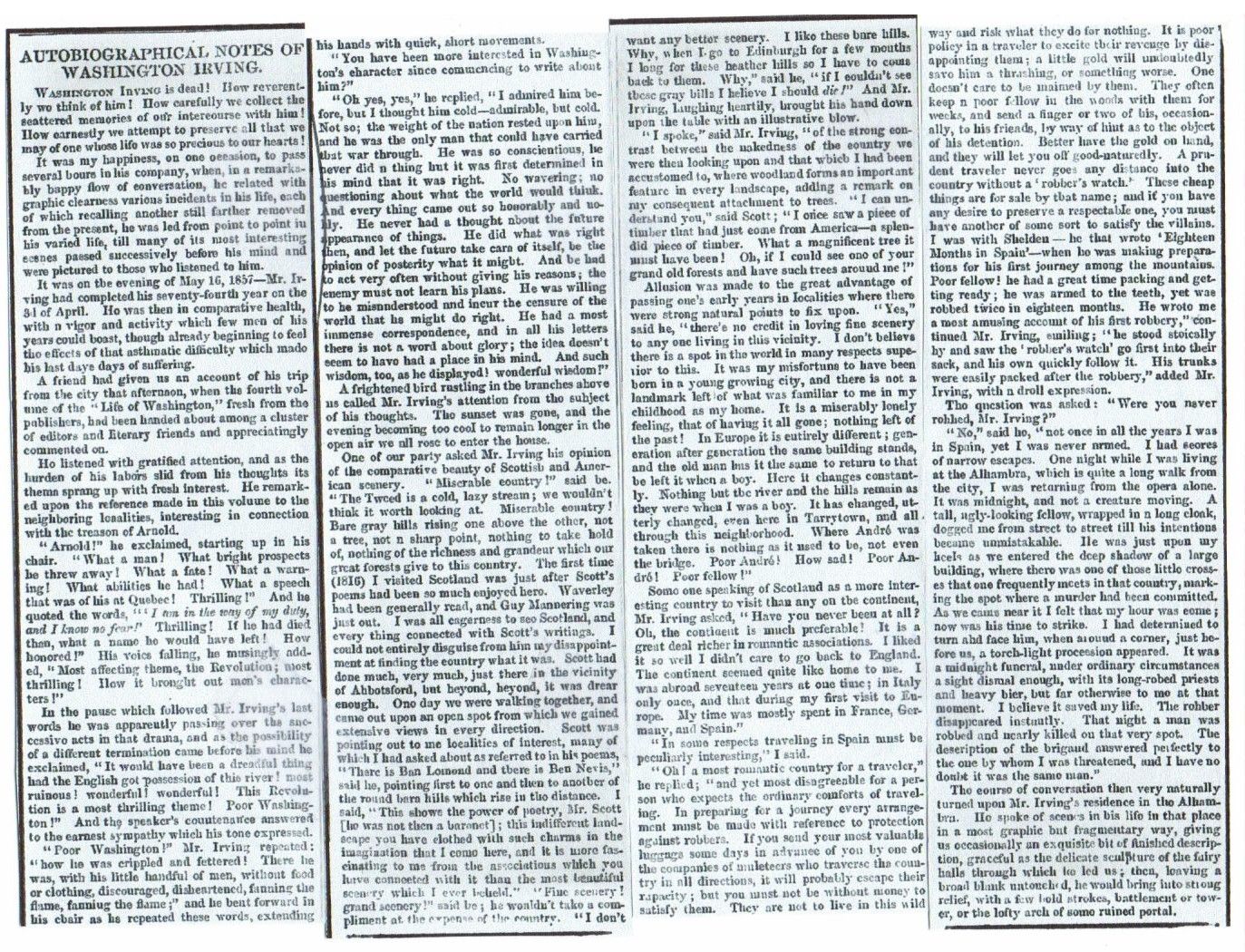




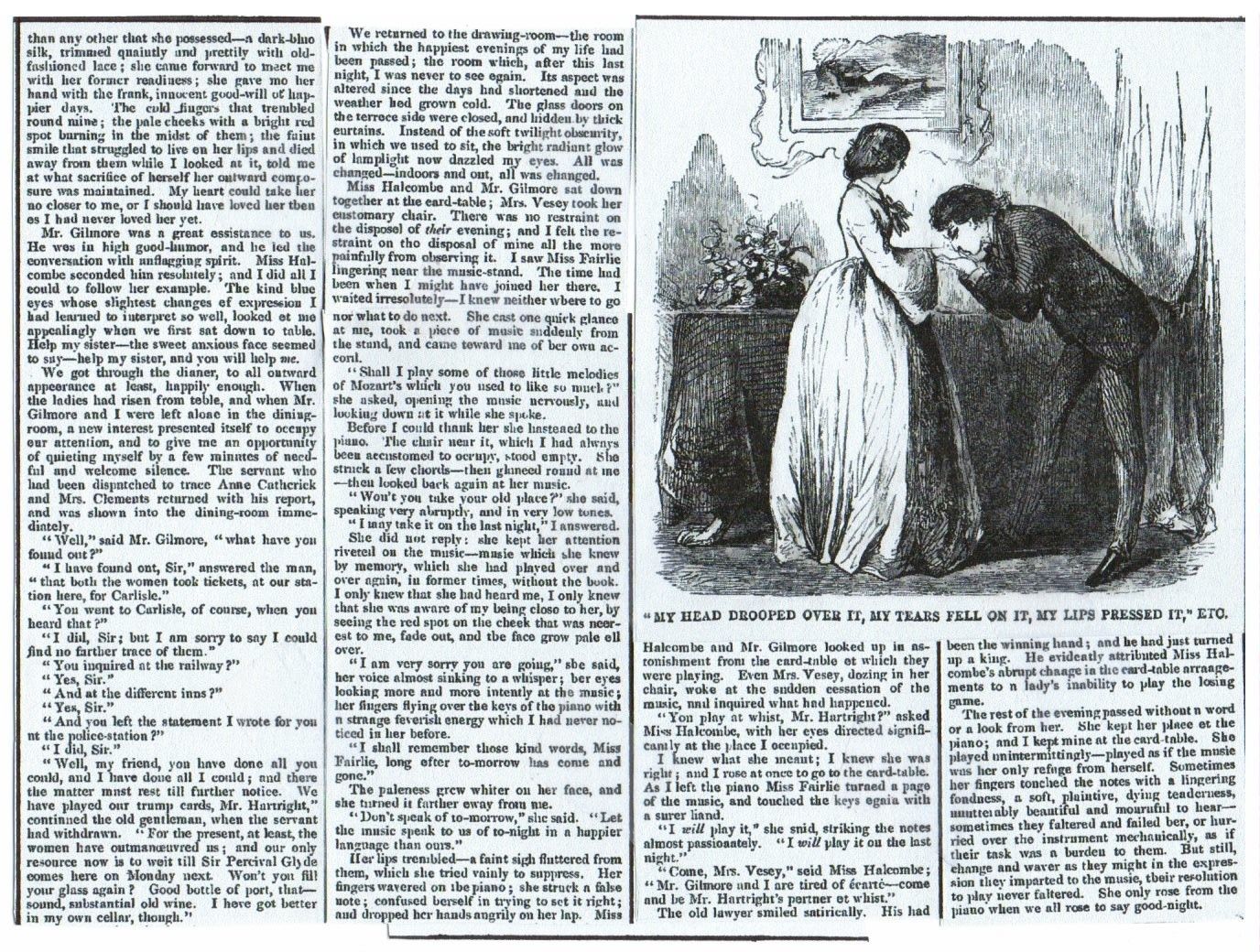




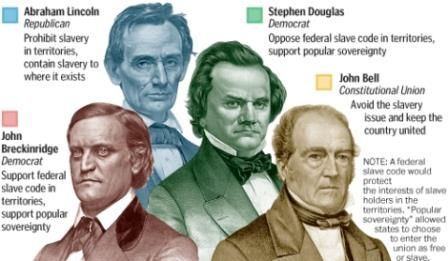
Free Republic University, Department of History presents U.S. History, 1855-1860: Seminar and Discussion Forum
Bleeding Kansas, Dred Scott, Lincoln-Douglas, Harper’s Ferry, the election of 1860, secession – all the events leading up to the Civil War, as seen through news reports of the time and later historical accounts
First session: November 21, 2015. Last date to add: Sometime in the future.
Reading: Self-assigned. Recommendations made and welcomed.
Posting history, in reverse order
To add this class to or drop it from your schedule notify Admissions and Records (Attn: Homer_J_Simpson) by reply or freepmail.
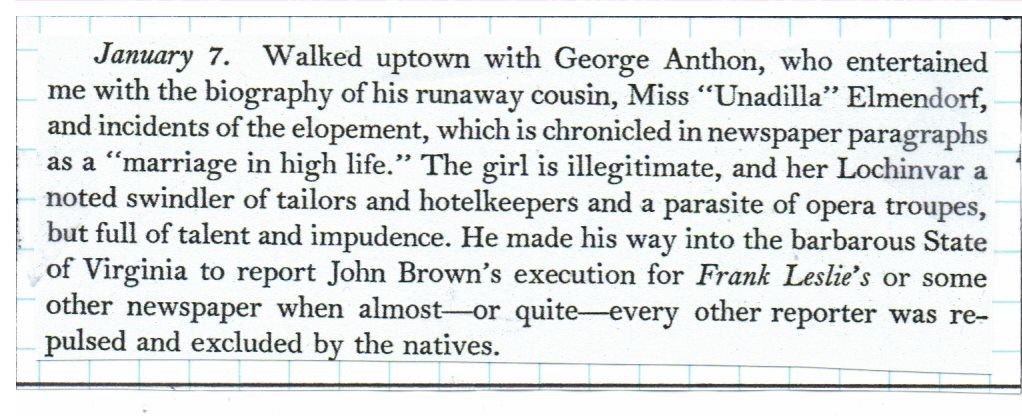
The Diary of George Templeton Strong, Edited by Allan Nevins and Milton Halsey Thomas
Ah, personal scandal!
ALEXANDRIA, Tuesday morning [Jan. 7, 1860]
. . . . I have just paid every bill due by the Seminary and hereafter the cash system shall prevail. We now have thirty-six cadets (five state). . . John Sherman is tetchy about seeming to yield to clamor, but if Dr. Smith explains the manner in which the letter came to him, nobody can object. We are working smoothly. I have found my books – in Henarie's loft where they had been three weeks! – too bad. They were marked plain. . .
SOURCE: Walter L. Fleming, General W.T. Sherman as College President, p. 104
Poor Cump. I so totally feel his financial pain, his thrill at being out of debt, the expectation that it could last, but then ... GAAAAAH.
STATE SEMINARY, Alexandria, Jan. 8, 1860.
DEAR SIR: As you can well understand I am in the midst of busy times, answering letters, making reports, issuing orders, etc., all pertaining to the organization of a new school on a new plan for this part of the world. The weather has been exceedingly boisterous. Snow fell here last week, five inches, but it lay only one day. To-day was like May with you. But the rains and frosts have made the roads bad and have in a measure delayed the coming of our cadets. They have been so used to delay and procrastination that they could not understand the necessity of time.
I took things in hand a la militarism, usurped full authority and began the system ab initio. We now have thirty-two cadets who attend reveille and all roll calls like soldiers, have their meals with absolute regularity and are already hard at work at mathematics, French, and Latin. I am the only West Pointer, but they submit to me with the docility of lambs.
A good many gentlemen have attended their sons and are much pleased with the building and all arrangements. They occasionally drop the sentiment of their gladness that thus they will become independent of the North and such like, but not one man has said one word about John or anything at which I could take exception.
The supervisors seem glad to devolve on me all the burdensome task of details, and are now loud in their determination to besiege the legislature to so endow the Seminary that it shall be above all danger or contingency. The governor sent me word to-day to give him some points for his message, and I have written him at length urging him to get the state, out of her swamp lands, to double our endowment. The present comes from the United States. If Louisiana gives equal we will have an income of $16,200, which would put us above all want. Or if she will simply appropriate to pay for the sixteen cadets which she forces us to educate and support. . .
This however is too good a berth to risk.1 I perceive I have a strong hold there. The South are right in guarding against insidious enemies or against any enemies whatever, and I would aid her in so doing. All I would object to is the laying of plans designed to result in a secession and Civil War. The valley of the Mississippi must be under one government, else war is always the state. If I were to suspect that I were being used for such a deep laid plan I would rebel, but I see daily marks of confidence in me and reliance upon my executing practical designs, and if I were to say that I contemplated leaving I would give great uneasiness to those who have built high hopes. Still if is in earnest and I can hold off till the legislature shows its temper (it meets Monday, the 16th) I will be in better attitude to act.
Here at $3,500 I could save little after bringing my family, but I would have good social position, maybe a good house and, taken all in all, a pleasant home, for such I should make it, designing to keep my children here summer and winter, always. Epidemics never originate here. Sometimes they come up after having sojourned some time below. . .
We must absolutely have help this year or the Seminary cannot pay the salaries stipulated for, nor build houses for the families. I now handle all the moneys and am absolute master of all the business. We have a treasurer twenty miles off, under bond, whereas I, in fact, have in my possession all the moneys, $6,000 nearly, and for its safety they have never asked of me a receipt. I cannot therefore mistake the confidence of the Board. Caution must be my plan now.
_______________
1 Sherman here refers to an offer made to him of a position in London. — Ed.
SOURCE: Walter L. Fleming, General W.T. Sherman as College President, p. 104-6
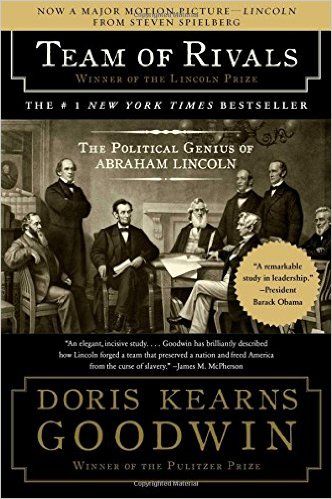
The last excerpt from this book was on December 21, 1859 (reply #10).


Doris Kearns Goodwin, Team of Rivals
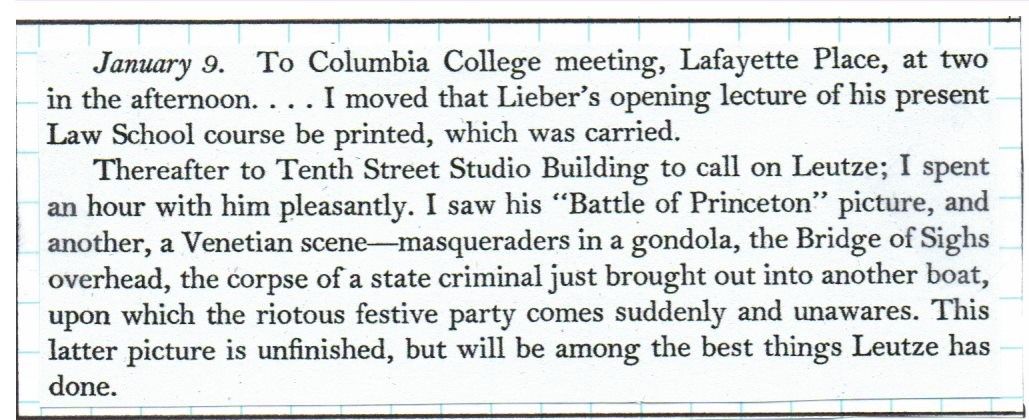
The Diary of George Templeton Strong, Edited by Allan Nevins and Milton Halsey Thomas
SEMINARY, Monday, Jan. 9, i860.
According to your request, I prepared yesterday and will mail today for Governor Wickcliffe: 1. A copy of our morning report of yesterday giving numbers of officers, cadets, and servants. 2. Distribution of rooms, showing easy accommodations for one hundred forty-three cadets, and in case of necessity fifty more. 3. Copy of our register of cadets, giving names, etc., of thirty-one cadets (now thirty-two). . . 4. Copy of the proceedings of the Academic Board, showing the basis of instruction, text books, etc. Still subject to change, before being finally referred to the Board of Supervisors for approval.
And lastly I wrote him a letter, giving him such details and suggestions as occurred to me at the time. Of all these I retain copies, and would send them to you only they are voluminous, and are always here of record, and will be examined by you on your next visit. Our mess arrangements, drill and recitations work as smoothly as I would expect. . .
Dr. Smith1 sent me word to send him about the close of this month at Baton Rouge full details for his use. I think I had better do so, carefully and minutely.
1 State senator and member of the Board of Supervisors. — Ed.
SOURCE: Walter L. Fleming, General W.T. Sherman as College President, p. 106-7
Hi.
“Copies?”
How did they and the government make copies back then. Mimeograph?
5.56mm
Good question. Carbon paper?
The Commonwealth Of Virginia, To The Executive Authority Of The State Of Iowa:
Whereas it appears by the annexed document, which is hereby certified as authentic, that Barclay Coppoc is a fugitive from justice from this State, charged with the crime of treason, conspiring with and advising slaves to rebel and make insurrection, and with murder perpetrated at the town of Harper's Ferry, in this Commonwealth, on the sixteenth and seventeenth days of October, in the year 1859: Now therefore I. John Letcher, Governor of the State of Virginia, have thought proper, by virtue of the provisions of the Constitution of the United States, in such cases made and provided, and of the laws of Congress in pursuance thereof, to demand of the Executive authority of Iowa, the arrest and surrender of Barclay Coppoc, and that he be delivered to C. Camp, who is hereby appointed the agent to receive him on the part of this Commonwealth.
Given under my hand as Governor, and under the Great Seal of the State, at Richmond, this 10th day of January, 1860, and in the eighty-fourth year of the Commonwealth.
{L. S.}
JOHN LETCHER.
SOURCE: Henry Warren Lathrop, The Life and Times of Samuel J. Kirkwood, Iowa's War Governor, p. 96-7
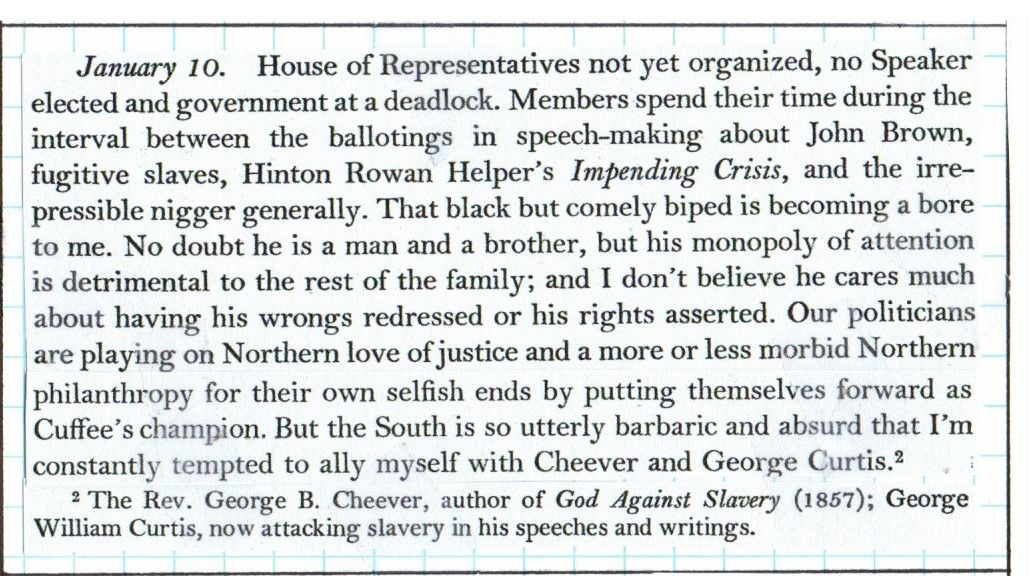
The Diary of George Templeton Strong, Edited by Allan Nevins and Milton Halsey Thomas
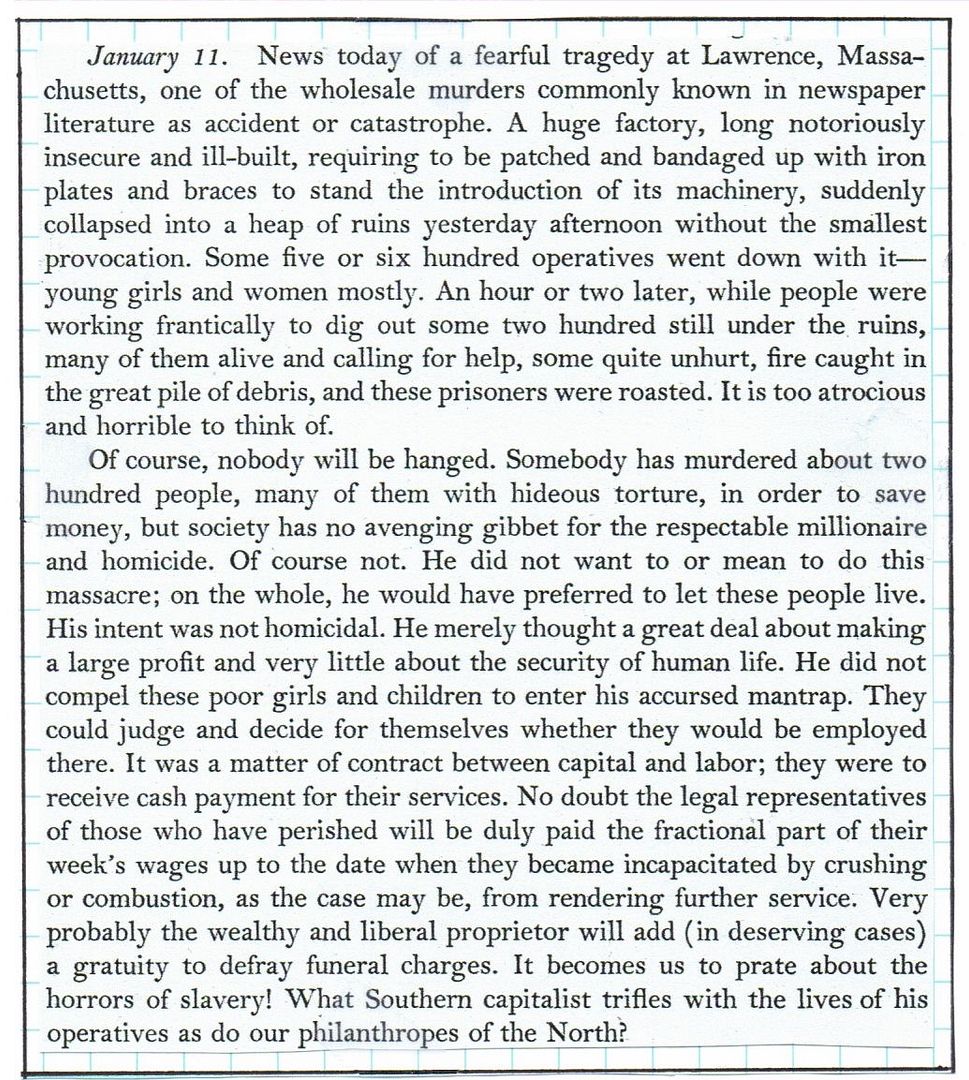
The Diary of George Templeton Strong, Edited by Allan Nevins and Milton Halsey Thomas
SEMINARY, Wednesday, January 11, 1860.
DEAR GENERAL: . . . I will receive all who apply whether appointed or not, and would suggest that you send me a few blank appointments. This idea is suggested by the fact that a young man named Stokes rode one hundred twenty-five miles from Monroe on horseback simply to find out whether it “am a fact” that such an institution was in existence. He brought the enclosed letter. I tried to prevail on him to stay but he was ordered to return. I wrote Mr. Noble to send him back forthwith with two hundred dollars. He thought he could go and return in seven days but I allow ten. . .
SOURCE: Walter L. Fleming, General W.T. Sherman as College President, p. 107
To this date the number of cadets who have reported themselves at the State Seminary is over forty, the arrivals having been at the rate of about six per day. The cadets who have arrived are creditable representatives of Young Louisiana, averaging in age about seventeen years and in height about five feet six inches. A considerable proportion of them are well advanced in academic studies and several have been members of military schools in other states.
By the energy and forethought of the superintendent, the professors and members of the Board, due preparation had been made for this promising influx of cadets, who are now, consequently, already beginning their studies. It is very desirable that all students who intend to go to the Seminary during the current session should report themselves at the earliest day practicable. . .
While on this topic we might as well advert to a serious error into which some have fallen concerning the course of study at the State Seminary. It is assumed by these that, as the organization of this institution is military in character, the course of study will of necessity be purely scientific, to the exclusion of classical studies. On the contrary provision is made for as complete a course of tuition in Latin and Greek as can be enjoyed in any American College. The chair of ancient languages is filled by an able professor, chosen by the Board of Supervisors from a large number of applicants, and recommended as well by his attainments as by his success as a teacher. Our State Seminary has therefore all the features of a collegiate institution of the first grade; its military regulations and discipline will not interfere at all with the classical and scientific pursuits of the cadets, as we have already fully explained.
SOURCE: Walter L. Fleming, General W.T. Sherman as College President, p. 107-8
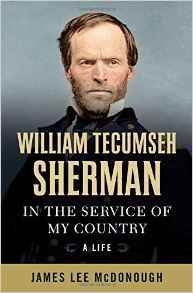
Continued from December 23, 1859 (reply #16).
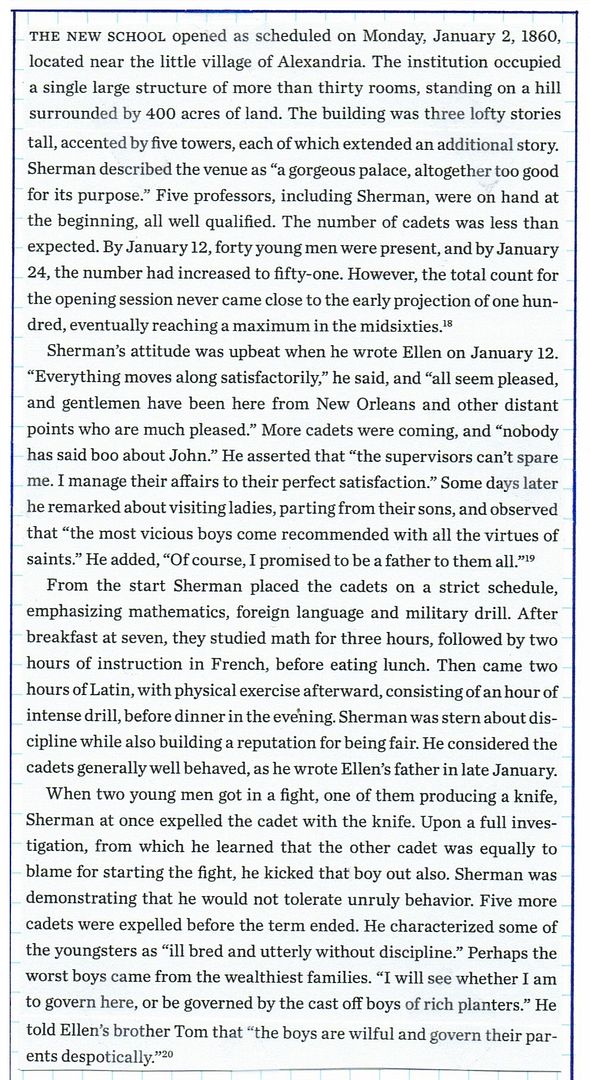
James Lee McDonough, William Tecumseh Sherman: In the Service of My Country, A Life
SEMINARY, Jan. 12.
. . . I have allowed more time than usual to pass without writing. Indeed I have had a good many calls upon my time not properly belonging to me. The steward was sick of sore throat that made it imprudent of him to come so I had to supervise his mess affairs. I had a parcel of lazy negroes scrubbing and cleaning, and lastly new cadets arriving and receiving their outfits. I have to do everything but teach. We have now forty cadets all at work reciting in mathematics, French, and Latin, also drilling once a day. I drill one squad, but as soon as I get a few of the best far enough advanced to help I will simply overlook. Hereafter I will have none of this to do.
Everything moves along satisfactorily, all seem pleased, and gentlemen have been here from New Orleans and other distant points who are much pleased. I have knowledge of more cadets coming, and this being the first term and being preceded by so much doubt I don't know that we have reason to be disappointed with only forty. The legislature meets next Monday, and then will begin the free discussion which will settle the fact of professors' houses and other little detailed improvements which will go far to make my position here comfortable or otherwise.
Nobody has said boo about John. Indeed I have two letters from John which I showed to General Graham who gave them to the senator from this Parish, who took them to Baton Rouge. In them John tells me he signed the Helper card without seeing it, not knowing it, but after Clark1 introduced his resolution he would make no disclaimer. He was right, and all men acquainted with the facts will say so. Even southern men. The supervisors can't spare me. I manage their affairs to their perfect satisfaction, and all here in the parish would never think of complicating me. But the legislature may – we shall soon see. . .
1 John B. Clark, a member of Congress from Missouri, introduced a resolution to the effect that no person who endorsed Helper's book was fit to be speaker of the House of Representatives. — Ed.
SOURCE: Walter L. Fleming, General W.T. Sherman as College President, p. 117-8
SEMINARY, Friday Night, Jan. 13, 1860.
DEAR GENERAL: . . . We are getting along well enough. On Monday next a week, I will order breakfast at seven, Mathematics, five classes a week from eight to eleven, French from eleven to one, Latin two to four, drill one hour daily — and that order will carry us to June. The tailor was to have been out to-day to measure for uniforms, but as usual he did not come. As soon as I have measures I will order fifty uniforms coats, vests, and pants, hat and forage caps, also a suit of fatigue flannel — fifteen dollars per coat, vest, pants.
I think there is no objection to the use of the extract of Bragg's letter. I also do not object to a reasonable use of John's letters to me. I think he would not like to appear to seek to counteract any prejudice against him in any quarter, save privately among gentlemen. Not for the public and press. Congressmen think their public record hard enough to reconcile to the changing opinions and prejudices of a wide-spread people.
I saw him last summer, had much talk with him on this subject, and used all my influence to prevail on him to assume a high national tone, and understood him as asserting that no bill could be offered for any purpose in Congress without southern politicians bringing in some phase of the negro question. But on the subject of slave property in the states where it exists, or any molestation of the clear distinct rights relating thereto, guaranteed by the compact of government, he expressed in a speech in my hearing as emphatic a declaration as any one could. But as to nationalizing slavery or getting Congress to pass a distinct law about it in the territories that he will not do. I sent you his letter to show you my reason for asserting that he is no abolitionist. I could not understand his signing the Helper's card and wondered why he did not explain it in his place, but he could not do so after Clark's resolution.
I did apprehend for a time that any feeling against him might be turned against me — not injuring me materially as I have still open to me the London offer, but that my being here might prejudice the Seminary, a mere apprehension of which would cause me to act promptly — but I do not apprehend such a result now.
Our grounds are being materially damaged by the hauling of heavy loads of wood by the front gate, over the only smooth ground we have for a parade; the ground being soft and the wagons turning upon the Bermuda grass, which is firmer than the road I feel much tempted to alter our fences — thus to run a fence from the rear of building straight to the road, and compel all loaded wagons for Jarreau or ourselves to enter to the side and rear. I think I could do all fencing by the men employed to saw and distribute wood, especially as the weather grows warm giving more time. I could get the board for the fence of Waters, on account of his son who is with us. I estimate the entire cost of all the fencing necessary at two hundred dollars and I could do all that is necessary at one hundred fifty dollars, and it would add greatly to the appearance of the place.
I made the measurements to-day and will make a diagram showing my meaning but of course I will do nothing without your sanction. We will have some of the construction fund left — as our furniture will all be taken by cadets at a small profit over cost. With present fences and gate constantly open our enclosure is full of hogs. We dare not kill them, and they root about and keep our premises nasty. I am full aware of the absolute necessity for economy and allude to the subject only, as I might now work in labor of men we must keep employed at the wood-pile; by using split posts I could further reduce cost; little by little anyway I will smooth the ground for drill. . .
SOURCE: Walter L. Fleming, General W.T. Sherman as College President, p. 120-2
I have enjoyed reading about this chapter of Sherman’s life. It is certainly ironic that the man whose very name would be hated in the South after the War lived in the Deep South just before it started.
Disclaimer: Opinions posted on Free Republic are those of the individual posters and do not necessarily represent the opinion of Free Republic or its management. All materials posted herein are protected by copyright law and the exemption for fair use of copyrighted works.